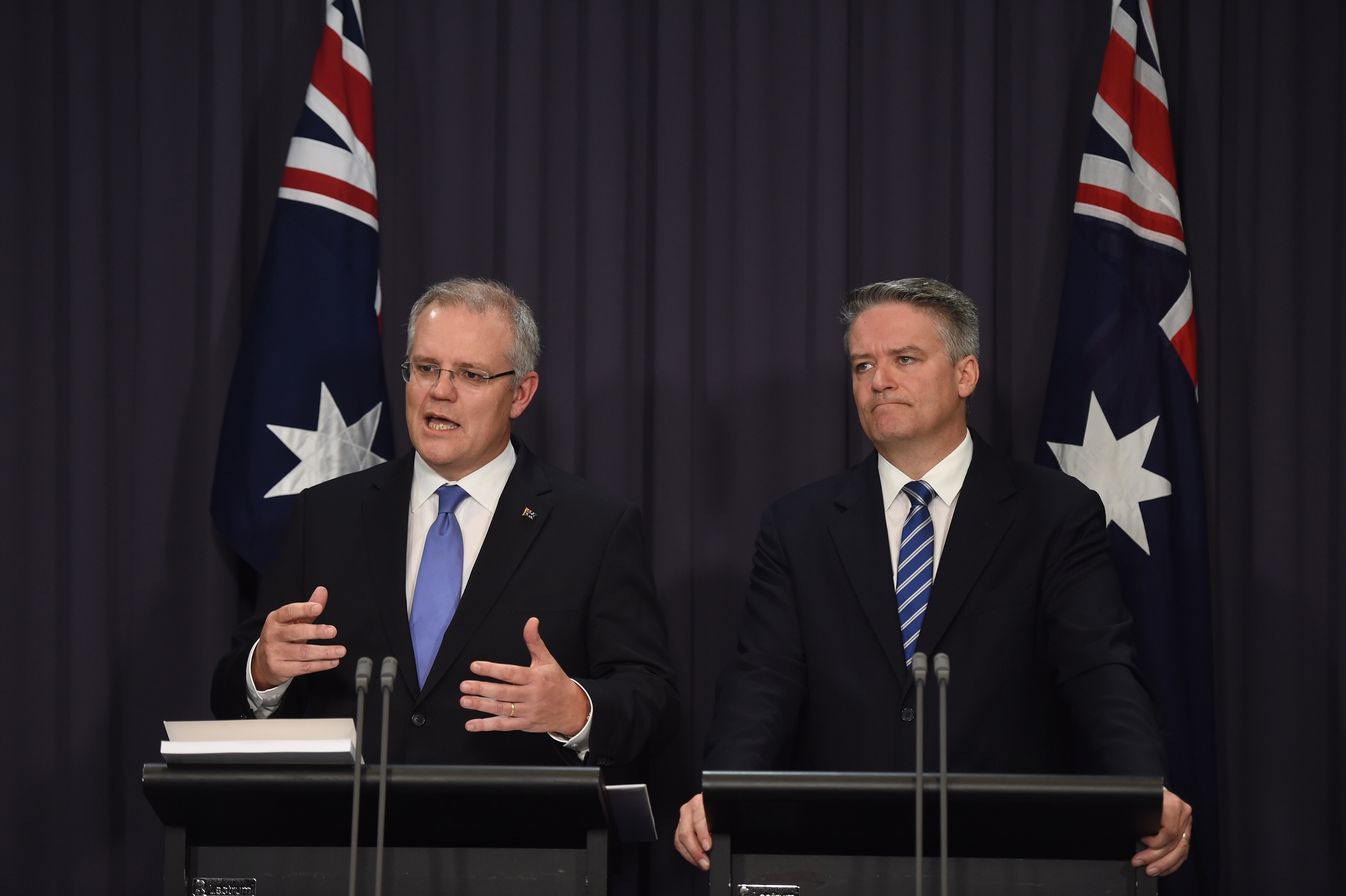
Politics & Society
Reality versus rainbow world

Professor Ross Garnaut warns an over-optimistic budget update is obscuring the need to take action to boost the economy
Published 19 December 2016
The Australian Government’s latest downgrade to its budget outlook has failed to deliver the reality check the country needs, warns economist Ross Garnaut, professorial fellow at the University of Melbourne.
He says the latest Mid-Year Economic and Fiscal Outlook (MYEFO) continues to be based on overly optimistic assumptions that are only delaying urgent action to boost the economy.
“I said about the May budget that it continued the five year old tradition of following the rainbow. My concern now is that this MYEFO continues that tradition,” Professor Garnaut says.

A summary of MYEO, delivered by Australian Treasurer Scott Morrison on December 19, is:
Size of deficits over four years revised up by more than a combined $10 billion;
Deficit for 2016-17 revised down slightly to $36.5 billion from $37.1 billion;
GDP growth to slow to 2 per cent in 2016-17, but rise to 2.75 per cent in 2017-18;
Government reiterates forecast return to surplus in 2020-21.
Professor Garnaut says MYEFO assumes a strengthening of economic growth, of which there is no sign. Instead, he warns the budget outlook will continue to deteriorate unless effective action is taken to increase growth by making the economy more competitive.
But he is opposed to the Government’s plan to boost the economy with significant corporate tax cut, warning it will worsen the budget outlook over the relevant period.
He argues instead the Reserve Bank needs to cut interest rates and drive down the value of the Australian Dollar as a way to make business more competitive. And he says the Government needs to directly boost the economy by taking advantage of low global interest rates to borrow and invest in new public infrastructure.
These measures should be backed by moderate and gradual cuts in spending, and moderate and gradual tax increases to repair the budget.
While MYEFO did include lower and more realistic forecast for commodity prices, Professor Garnaut say it is too optimistic on other matters beyond the next two years.
“The budget is correct to be more cautious on commodity prices, but the forecasts on growth in terms of economic output and on incomes look over-egged.”

Politics & Society
Reality versus rainbow world
Professor Garnaut is concerned that such “rainbow” forecasts are encouraging the Reserve Bank of Australia to run a tighter than needed monetary policy.
He argues Australia’s economy is too weak to justify interests rates that remain well above those in the US, Japan and Europe where authorities have cut rates in response to slow growth.
And he says the US economy is much stronger than Australia’s, but we are running a much tighter monetary policy.
“The most important stimulus we need is a lower exchange rate, which would come from a more realistic relative interest rate.”
One of the arguments against further interest rate cuts and a lower currency is that it makes imports more expensive and stokes wages pressures. But Professor Garnaut sees little danger of a wages blowout and a fall in the exchange rate would improve business competitiveness.
“The labour market is functioning well and that means we can expect the benefit of a lower currency to flow through to industry.”
Professor Garnaut also advocates increased public spending on needed infrastructure as a way to boost the economy, but he wants the politics to be removed as far as possible from infrastructure decisions. Instead he says Australia’s infrastructure needs should be assessed by a body of expects that can then make recommendations.
“We tend to make our decisions on infrastructure through a political process that often involves conflict between the Federal and State government, so we need a more professional process.
Professor Garnaut says the budget deficit also needs to be reined in with spending cuts and tax increases, but they need to be gradual to avoid hurting the economy.
“We need a tighter budget but we need to do it gradually because we have a weak economy and we don’t want to shock it by suddenly and radically tightening fiscal policy, either by raising taxes too suddenly or reducing spending by too suddenly. We need moderate and targeted tax increases and we need moderate and targeted spending cuts.”

Business & Economics
How post-boom Australia is faring
Professor Garnaut says the Government’s plan to cut the corporate tax rate should be scrapped because it will only make the deficit worse by cutting revenue.
“No one that I am aware of has suggested the corporate tax cut will boost investment in economic activity anywhere near enough to generate additional revenue to pay for the tax cuts in time for when the budget is supposed to return to surplus in 2020-21.”
Ahead of MYEFO there was speculation that credit ratings agencies could downgrade Australia’s credit rating, but in the event they maintained their ratings. Professor Garnaut said a future downgrade remained a risk, though he is sceptical of the ability of the agencies is accurate judging credit risk, noting they failed to flag the Global Financial Crisis of 2008. “The agencies have a poor track record themselves, even worse than the Australian Treasury,” he says.
Professor Garnaut says Australia appears to lack the strong political leadership needed to tackle the budget given the fractured parliament and a lack of bipartisanship.
“We certainly need leadership in a parliament that takes this issue seriously and can come up with a package that can carry the community with it. At the moment we don’t, but there is no reason we can’t have it,” Professor Garnaut says.
“There is no law of nature that says Australians are incapable of coming to grips with a severe budget problem of the kind we have.”
Banner image: Shutterstock